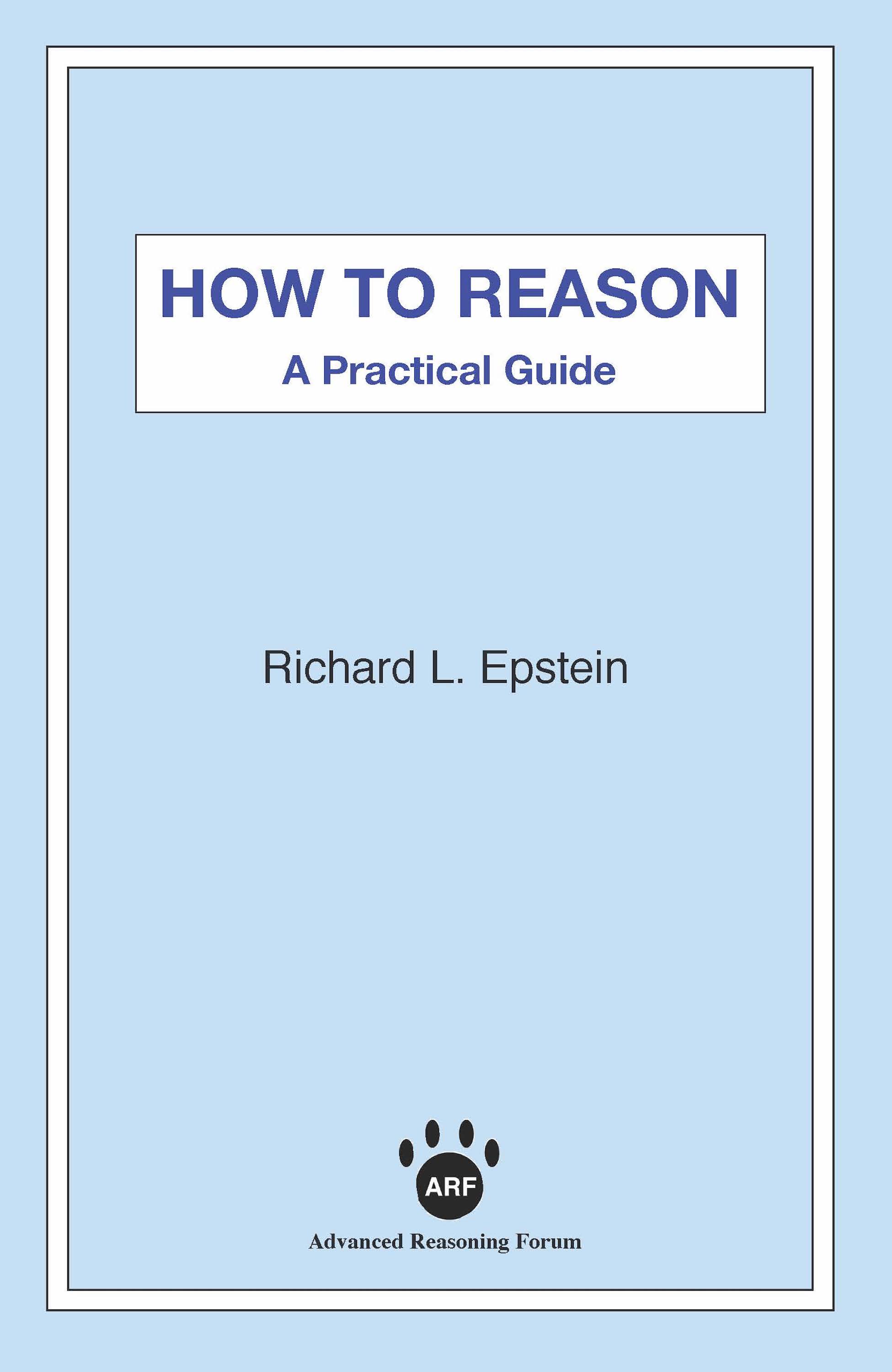Richard L. Epstein
Too often we’re guided by what we last heard, by our friends’ approval, by impulse—our desires, our fears. Without reflection. Without even stopping to think.
In this book you’ll learn how to reason and find your way better in life. You’ll learn to see the consequences of what you and others say and do. You’ll learn to see the assumptions that you and others make. Y ou’ll learn how to judge what you should believe. These are the skills we all need to make good decisions.
Claims. Arguments. Fallacies. Analogies. Generalizing. Cause and Effect. Explanations. These are clearly set out with hundreds of examples from daily life showing how to use them. Illustrations using a cast of cartoon characters make the concepts memorable. And many exercises will help you to check your understanding.
Truly a book for all—from high school to graduate school, from auto repair to managing a company. How to Reason will help you find a way in life that is clearer and not buffetted by the winds of nonsense and fear.
For all your courses. Or use it as the text for a course on critical thinking.
Based on the highly praised The Pocket Guide to Critical Thinking but with shorter chapters, more summaries and introductions and exercises for readers to test their skills.
"The Pocket Guide’s overall combination of accessibility, rigor and succinctness make it stand out from the crowded field of critical thinking texts, and the material new to this edition makes it an even more valuable resource for the teaching of critical thinking. This book should prove useful to instructors of critical thinking courses who are looking for a short text on critical thinking to supplement their own homework and exam materials as well as to any philosophy teacher looking for a relatively condensed treatment of critical thinking to recommend or assign to their students." —Timothy G. Murphy, SUNY Potsdam. Click here for the entire review in Teaching Philosophy
"I have used Richard Epstein's Pocket Guide to Critical Thinking in all of my introduction to philosophy and ethics courses. All of my students have found this book quite useful in becoming better at argumentation in both class discussions and writing assignments. Some students have even explicitly expressed that this book has helped them in other non-philosophy courses (e.g. biology, chemistry, physics, sociology, political science, and law). I highly recommend this book to any instructor who is looking for helping students understand critical thinking skills in the most accessible way possible." —Arsalan Memon, Lewis University
Read a review of our texts from Logic and Logical Philosophy.
See our Free Critical Thinking Supplements.

